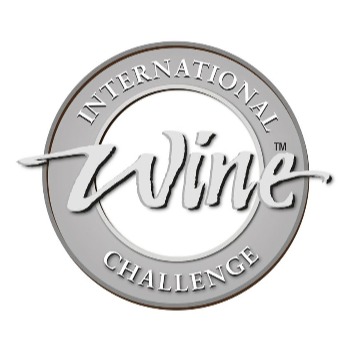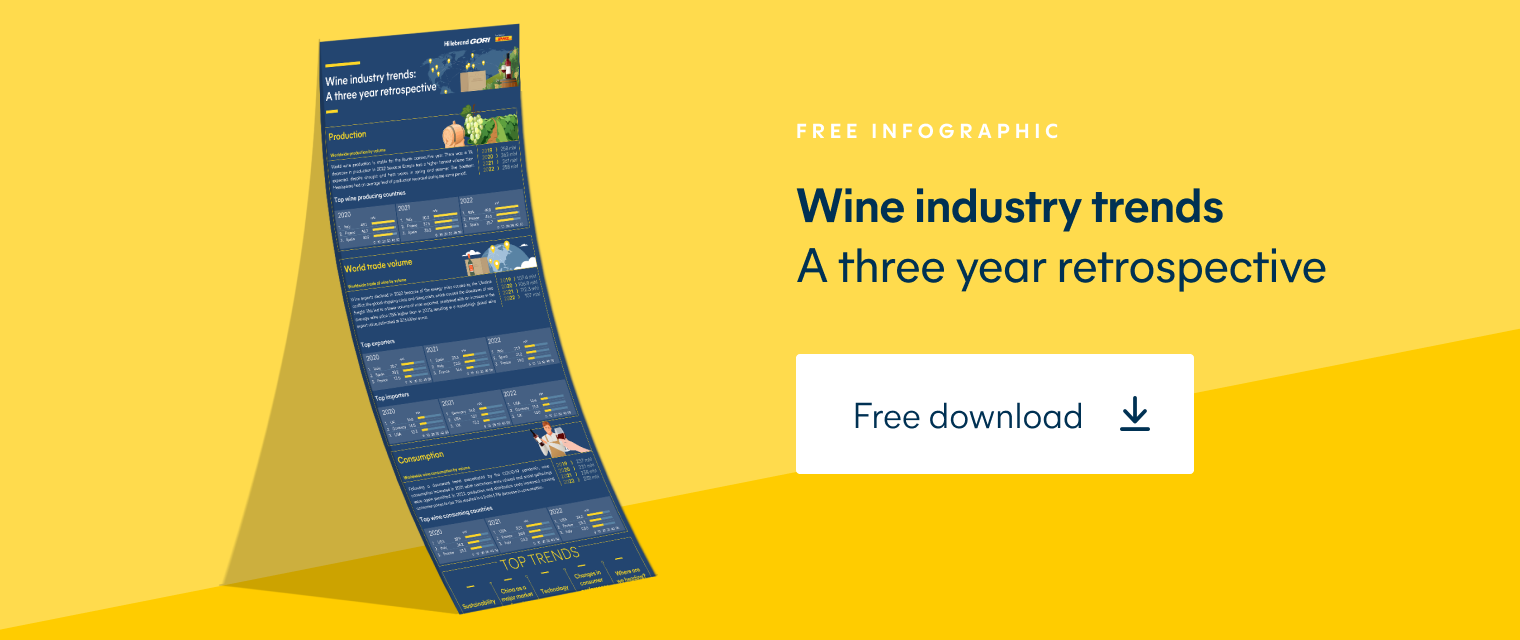What is wine investment?
Wine has become a popular way for investors to diversify their portfolios, perhaps because fine wine is seen as a reliable, high performing asset. Wine investment means acquiring certain wines with the intent to sell them later on. Fine wines are produced in limited amounts, and gain value as they age and become rarer. In this article we’ll cover the essentials of what you need to know to get started in wine investment.
Wine investment in the past and now
Although wines have been around for centuries, if not millenia, fine wine investment is thought to have taken off in the 20th century. Since the 1990’s, wine investment has increased hugely in popularity, thanks in no small part to its profitable and undeniably rewarding nature.
Over the last 5 years wine investment has enjoyed stable growth. The Liv-ex 1000 fine wine benchmark rose 34% in this period, in contrast to the FTSE100's modest 0.8% increase. However, since peaking in October 2022, the fine wine market has slowed down. As of late Spring 2023, the wine investment market appears to be undergoing a period of correction. Fine wine investment is increasingly a ‘buyers’ market’.
How do I start investing in wine?
There are two main ways to get started in wine investment. You can purchase and sell your wine as an individual, building a personal portfolio, or you can buy shares in an investment wine fund that pools capital from multiple investors. However, it’s worth being aware that there may be specific regulations in certain countries or regions regarding the sale of alcohol to individuals from another country. It is important to check local laws to ensure you are complying with all legal requirements.
Investing as an individual
The most important things to ensure you have in place as an individual wine investor are proof of traceability, provenance of wines and invoices. Building your personal portfolio often also means you'll need to get expert guidance from a wine merchant, broker or consultant. They will have an in-depth knowledge of the wine market, which can help you to minimise your investment risk. Beware, however, of scam wine investment proposals from disreputable brokers and other sellers. We will cover this in more detail when we walk you through some of the risks of wine investment.
There is no fixed minimum number of bottles or cases you need to start investing in wine. However, it’s useful to keep in mind that most wine auction sites prefer to sell wine in multiples of three.
The quality, rarity and provenance of the wine you choose to invest in are an important part of your decision-making process. Specifically, the quantity of wine you should invest in can vary depending on your investment goals, budget, and the specific wines themselves. The most in-demand investment wines are prestige wines such as fine Bordeaux and Grand Cru Burgundy, which start at US$600 per bottle.
You will also need to consider how you will protect your investment and long-term storage costs. This is because wine doesn’t usually give a fast turn around on your investment - expect to wait at least 5 years before selling, but sometimes you’ll need to wait up to 10 years.
Investing in a wine fund
If you feel more comfortable letting other people manage your investments for you, pooling your money in a wine fund or company can be a lucrative investment. The upside to investing in a wine fund is that they are partially regulated, and so investing in wine funds is often seen as lower risk than investing as an individual.
However, you need to understand how to invest in a company safely, and the risks involved.
How to protect your wine investment
Wine investment isn’t the same as buying stocks or shares. Wine needs to be transported and stored correctly, or your investment may start to lose value. Wine insurance helps you safeguard your wine collection against unforeseen events, giving you peace of mind.
Warehousing for wine investors
Before making an investment, you should consider how you will store your wine collection. You can store it at home, if you have a professional-standard cool, ventilated cellar or other environment that has a consistent temperature and humidity level. Alternatively, you can use a professional temperature-controlled wine storage facility to guarantee that your wine will maintain its condition. You’ll also need to think about when the wine will be most valuable to sell, as not even fine wines continue to appreciate in value indefinitely. After it reaches maturity, the evolution of your wines will stop. It is more difficult to keep them safe and in good condition after this, so knowing when to sell is essential.
Transporting wine safely
When it is time to take your wine to auction, you need to be sure that it will be protected during transit too. The ideal temperature to ship wine is between +10°C to 20°C (+50°F to 68°F). Exposure to temperatures outside this range can cause an unfavourable reaction which may damage or ruin the wine.
The label on the bottle is also as valuable as the wine in the bottle. The label tells your brand’s story and provides information required by law for importing and sale to consumers. The label needs to remain on the bottle, and not peel, slip or wrinkle, as this can reduce the value of the bottle. Labels can be damaged during transit and storage, by temperature and humidity changes within the shipping container. Relabeling a bottle at the destination can be an expensive option or in cases of rare or high value bottles, not an option at all. Protecting your labels is therefore just as important and protecting the bottle’s contents.
At Hillebrand Gori, we offer a range of solutions to protect your wine from unsafe temperatures during shipping. Suitable for cases, pallets and containers, our insulation liners are designed to safeguard wine from temperature fluctuations and protect them during transport. Moreover, our team of experts are experienced and knowledgeable in the end to end transport management of fine and rare wines.
Wine insurance
If you are using professional wine warehousing facilities, insurance is likely offered as part of the service. If you store your wine privately, you'll need to organise insurance. While your home or home contents insurance may offer some extended coverage for wine, specialised wine insurance is normally required for larger or more valuable collections.
Wine insurance from Hillebrand Gori includes:
- Physical damages to goods
- Robbery
- Terrorism risk, war
- Cost for disposal or demolition
- Civil commotion, riots or strikes
- Debris removal
- Duties and taxes (subject to additional premium)
- General average
We offer insurance for high-value wine shipments under Hillebrand Gori’s insurance policy, which is designed specifically for the beverage industry and is tailored to each consignment. Our wine insurance covers wine being transported by land, sea, air or rail, and covers all transport related risks, from theft to heat damage.
What is the risk of wine investment?
Wine investment sometimes attracts scams, and doesn’t always deliver the strong returns promised. Counterfeit wines and artificially inflated prices can be a problem, as well as high storage and insurance costs. Incorrectly stored wine can be a problem too, reducing the value of your investment. Here are some things to avoid:
Not storing your wine correctly
Storing your wine in temperature and humidity-controlled warehousing is vital. You must therefore factor in storage costs when assessing if wine investment is worthwhile. If you are storing wine yourself, you need to be able to spot signs of trouble with your wine collection. Find out more why wine leaks from the cork here, and what to do when wine tastes like vinegar here.
Not doing your due diligence
You must research the wine fund or seller you are interested in, as well as its managers, to limit your risk of falling foul of scams and bad operators. Use websites such as www.wine-searcher.com and cellartracker.com to check if the price you have been quoted is fair. If you are investing in a wine fund, choose a reputable company with a good track record.
Investing more than you can afford to lose
You will likely need in excess of several thousand dollars to start a fine wine collection, factoring in storage, insurance and transport costs. Wine investment is often advertised as immune to macro economic turbulence, but no investment is fool-proof.
Not obtaining proof of provenance
When buying wines, ensure you have a paper trail of provenance to show the wine is not fake.
Not taking into account all of your costs
As well as the cost of the wine, storage, insurance and transport, there are other costs you may need to factor in. In the US, these include the cut that the auction house will take of the sale of your consignment. This can be anything up to 20% of the sale. Make sure to speak to a financial adviser for help before making large investments.
Find out more about how to correctly store, transport and protect your wine investment
Wine investment isn’t right for everyone, but as an often resilient and profitable asset, it is certainly a popular way to diversify your investment portfolio. We are here to help you with store, protect and transport your wines safely. With warehousing for long term investors with the highest security, temperature and humidity control, plus specialist wine transport and insurance, we can help make getting started with wine investment that much easier. Contact your local Hillebrand Gori office today to get started.
Published 26th September 2023, updated 22nd December 2023
Yes, wine can provide high returns and many investors consider it an asset. Though it is an investment that requires time and knowledge to be successful.
Tax regulations regarding wine investment vary by jurisdiction. In the United States, any profit from selling wine is subject to capital gain taxes. In the United Kingdom, wine classified as a "wasting asset" isn’t subject to capital gains tax. A wasting asset is any tangible moveable property with a predictable life of 50 years or less.
Market conditions, vintage quality and individual investment goals may influence the decision to sell earlier or hold for a longer duration.
Use a reputable wine logistics provider, like Hillebrand Gori, who specializes in handling fine wines. They can recommend the right way to pack and transport the wine to preserve and protect its quality.

How can we help your business grow?




